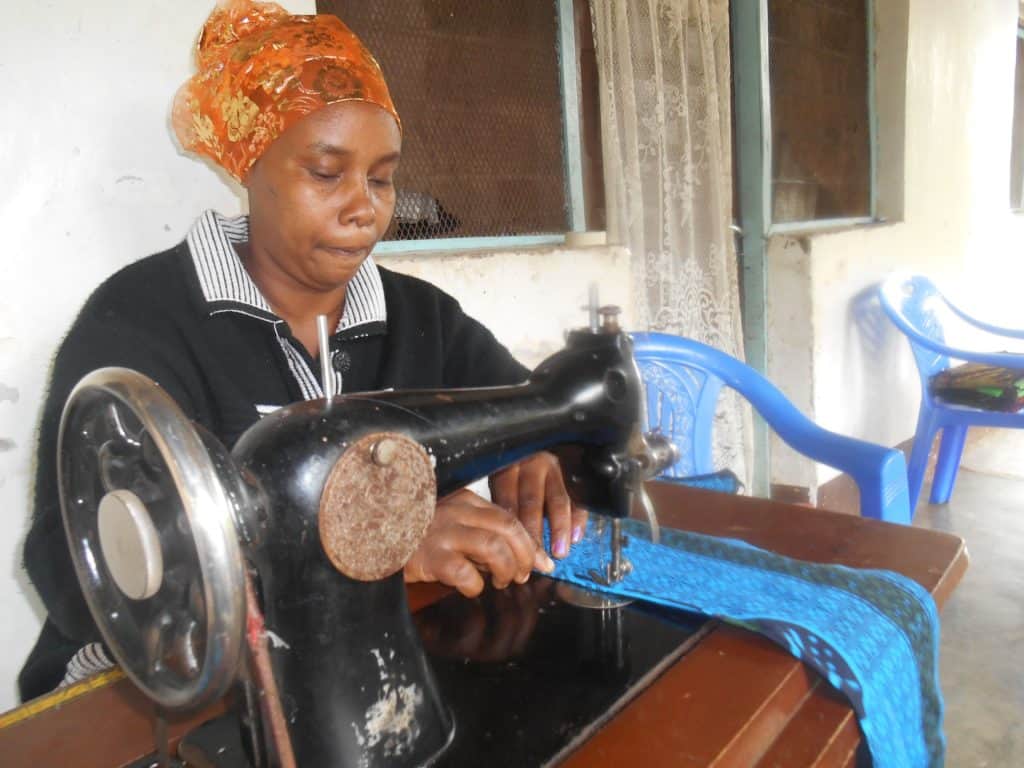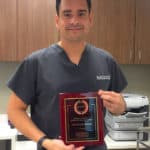
It’s amazing to see where life takes you. I’m a four-time cancer survivor – a three-time breast cancer survivor. The fact that I had cancer so many times, and survived, put me in a position to give back to the global community.
So far, I’m working on two fronts: being the owner of a patent on a medical device and empowering women to establish small business enterprises in Africa. Two products. Two tools. One developed to support a patient’s recovery after surgery, and the second to drive entrepreneurship in developing countries.
Due to cancer, I’ve undergone nine surgeries that required me to wear wound-care drains for a few weeks during recovery. The drain is about the size of a large lemon. It has two parts: a plastic suction bulb and a drain tube that extends from the wound area and acts as a sort of a freeway. The two parts together use suction to remove unnecessary fluids from a surgical area, collecting fluids in the bulb.
If you’ve never heard about or seen patients with these drains, I’m not surprised. Because the job of the bulbs is to accumulate gross material, like blood clots and mucus-type fluid, patients don’t talk about it. The bulbs are so awful-looking, most people choose to stay home – out of sight for the two to three weeks they must wear them.
In 2017, almost 50 years after the invention of these drains, nurses still distribute safety pins for managing them. Pins are a clumsy and impractical solution for managing the drains, but they’re dispensed because there hasn’t been a better alternative.
I invented something better. The KILI Carrier is a mesh apron. It’s extremely effective at suspending even heavy bulbs and drains. Both gender-neutral and one-size-fits-all drains are safely contained when zippered into the apron pocket. The device can be worn discreetly under shirts and tops. Now, a patient is more likely to be mobile, and studies have proven that the sooner the patient becomes mobile, the more accelerated their recovery will be.
The invention, along with a companion phone app called DrainIQ, was recently selected “Best Active Solution Award” by GuideWell Innovation and American Cancer Society. GuideWell Cancer Challenge was launched in August 2016 with the goal to create a collaborative platform that would allow innovative ideas and potential solutions to come to the forefront with the ultimate mission of making it easier to navigate life with cancer.
My life was so touched by the medical community’s response to the Medical Drain Carrier, I felt inspired to take another leap of faith. I volunteered to work for three months in a small remote village in Tanzania, Africa.

My volunteer placement gave me the opportunity to work with women in this rural village who had already established their very own micro finance group. Mkombozi Women’s Group consisted of mamas (an endearing term for women in Tanzania and Kenya) living within a one-mile radius of the home base where I stayed. In a micro-loan group, members set aside a little cash each week and take it to weekly meetings in order to invest back into the group.
My job was to take both English language and business education to Mkombozi. In all honesty, they were the teachers, and I was the student. Our accomplishments were celebrated with families and included dancing, singing and, occasionally, banana beer. I told the mamas about the Medical Drain Carrier. As a result, we designed and produced decorative versions of the carrier. The aprons were sewn from the bold, exotic and colorful fabrics made locally.
We had so much fun. Sewing was conducted on a treadle machine – allowing each mama to take a turn at being seamstress. In just two weeks, Mkombozi produced 40 spectacular aprons. Mkombozi is now a business as well as a micro-loan finance group. The endeavor gives mamas financial resources to pay school fees, buy more farming materials and improve their living conditions. And they feel so proud of their skills. The project opened the door to other endeavors and increased their understanding of business models.

The aprons are available to purchase here: www.KilimanjaroCarrier.com. More information on the Mkoombozi women’s group can be found on their website:
http://infomkomboziwomen.wix.com/-mkomboziwomen#!about-us/csgz
KILI Medical Drain Carriers are now distributed in several hospital post-anesthesia care units and also available online: www.medicaldraincarrier.com.


